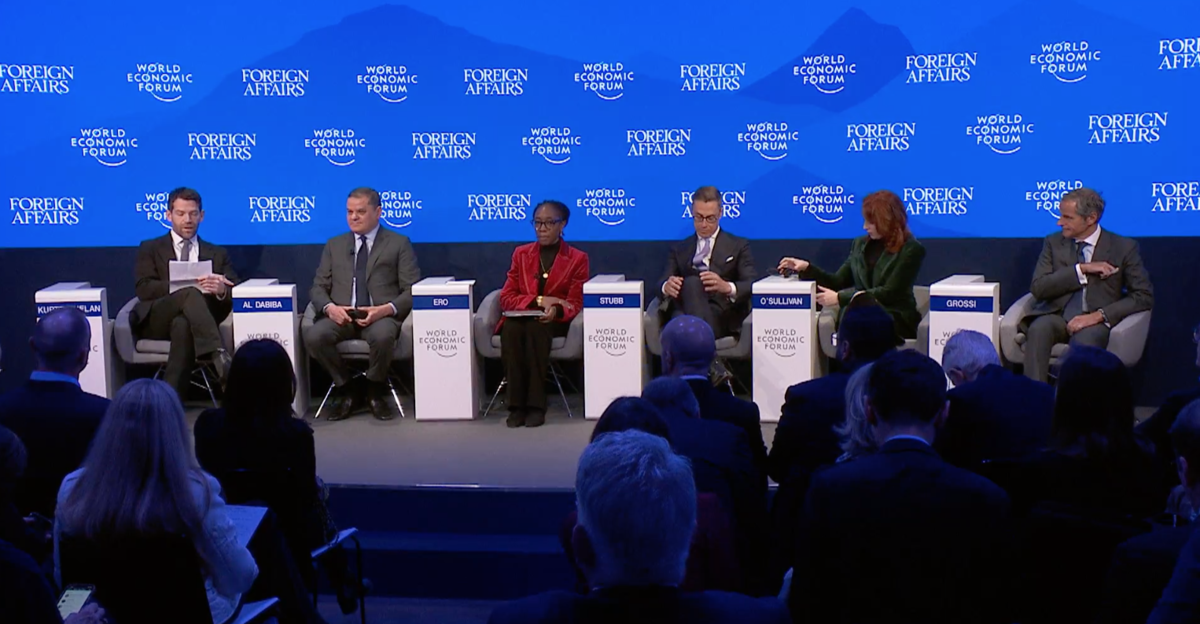DAVOS: Libyan Prime Minister Abdul Hamid Al-Debeibeh on Wednesday said that opinions are mixed on whether a new US administration under President Donald Trump would shift its approach to the Libyan situation.
Panel moderator Daniel Kurtz-Phelan, editor of Foreign Affairs, asked Al-Debeibeh to reflect on Trump’s return and if his new term as president would affect Libya’s stability.
“I believe not only Libya fears the return of Trump, many others, including Europeans, have somehow reservations and different views about how to perceive (it),” he told a panel on global security at the World Economic Forum in Davos.
Al-Debeibeh said Libya’s ongoing political crisis cannot be solved only from the point of view of security.
“Our institutions are still weak,” he said. “If we only focus on security, this is not the best recipe to solve the problems we have. Like many examples, in Syria lately and Afghanistan, we (in Libya) reject the idea of security-(based) solutions only.
“There are alternatives that we need to look into, such as reviving our heritage, our economic fabric, and this is precisely what is going to be the building blocks leading to a long-lasting stability here.
“If Mr Trump, the new American administration or whoever is in charge, if they really want Libya to be stable, then they shall look to find other ways to help us, not only through security, because otherwise, we are going back to square one.
“Unfortunately, when the diagnosis is wrong, then the result is wrong.
“If we focus on security only, this is going to backfire at the end of the day.”

The panel on global security at WEF 2025 (WEF/Supplied)
Al-Debeibeh pointed to the fragility of state institutions and challenges to rebuilding a new Libya. But he said that his country is recovering slowly through the national unity government, and has managed to reestablish state institutions and services, today more than any time before.
“I have to tell you things are not rosy, but we somehow managed to recover to normal life in Libya and I would very much like thank the international community for backing us.”
He said the main challenge remains in the work to democratize Libyan society, saying that “democracy is the only solution.”
However, foreign intervention in Libya is a big challenge, because there are “powers who want to intervene, they want to impose their own agenda for many reasons.”
Yet, his country still needs to establish democratic institutions, a constitution that reflects Libyan society and to hold a referendum on the draft constitution.
“We have enough of weapons, we need stability to begin with, we need to stabilize the economy because it is the way to stabilize the political situation. We have oil, we want foreign companies to come to invest in a win-win situation. So, the more the economy is stable, the more we have a stable country.”























